Does kombucha help with IBS?
Imagine sipping on a fizzy, tangy, and delicious beverage that may not only satisfy your taste buds but also potentially improve your gut health – sounds too good to be true, right? As the popularity of fermented foods and beverages continue to grow, kombucha lovers across the globe swear by this ancient drink's ability to boost their gut health. However, does this carbonated concoction really possess the magical powers to alleviate the symptoms of Irritable Bowel Syndrome (IBS)?
In this blog post, we will delve deep into the world of kombucha and uncover if this flavorful brew can indeed be the elixir we've all been searching for to keep our IBS symptoms at bay. Buckle up and get ready for some science-backed information that might just revolutionize your gut health game!
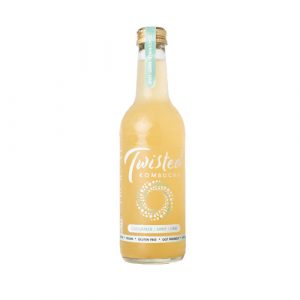 Source: twistedkombucha.co.uk
Source: twistedkombucha.co.uk
Introduction to Kombucha and IBS
Kombucha, a popular fermented tea beverage, is known for its numerous health benefits, including probiotic, antibacterial, and antioxidant properties. However, when it comes to irritable bowel syndrome (IBS), a digestive disorder affecting the large intestine, there are mixed opinions about kombucha's effects on this condition. Some people with IBS claim that kombucha helps alleviate their symptoms, while others argue that it may trigger or worsen them. In this blog, we will explore the relationship between kombucha and IBS, as well as whether this fizzy drink may help or aggravate IBS symptoms.
First and foremost, let's explore the potential benefits of kombucha for IBS sufferers. The fermentation process used to make kombucha yields living bacterial cultures that promote good gut health. These beneficial microorganisms can help balance the levels of bacteria in the gut, which may, in turn, alleviate some IBS symptoms such as bloating, abdominal cramping, gas, and diarrhea. Additionally, kombucha is a natural source of probiotics, which are known to support optimal gut health. When consumed in moderation, this fermented beverage may provide some relief for people with IBS.
On the other hand, there are several reasons why kombucha may not be suitable for all IBS sufferers. For one, kombucha is a carbonated beverage, which means it can cause gas and bloating by introducing carbon dioxide into the digestive system. Moreover, kombucha contains FODMAPs (fermentable oligo-, di-, and monosaccharides and polyols), which are types of carbohydrates that can exacerbate IBS symptoms. Most people with IBS follow a low FODMAP diet and should be cautious when consuming kombucha.
Furthermore, kombucha contains small amounts of sugar, caffeine, and alcohol—all of which can irritate IBS symptoms. It's important for IBS sufferers to choose a kombucha brand with low sugar, alcohol, and caffeine content to minimize potential triggers. In addition, some manufacturers add artificial sweeteners like sorbitol and mannitol to their products, which can have a laxative effect and make IBS symptoms worse.
In conclusion, the effects of kombucha on IBS can greatly vary depending on an individual's sensitivities and the specific ingredients in a particular brand of kombucha. While some people with IBS find relief in consuming kombucha, others may not handle it well, and it could potentially worsen their symptoms. If you have IBS and are considering trying kombucha, consult your doctor first and experiment with small quantities to gauge how your body reacts to it. Be sure to select a low-sugar, low-alcohol, low-caffeine, and low-carbonation brand to minimize the risk of triggering IBS symptoms. [1][2]
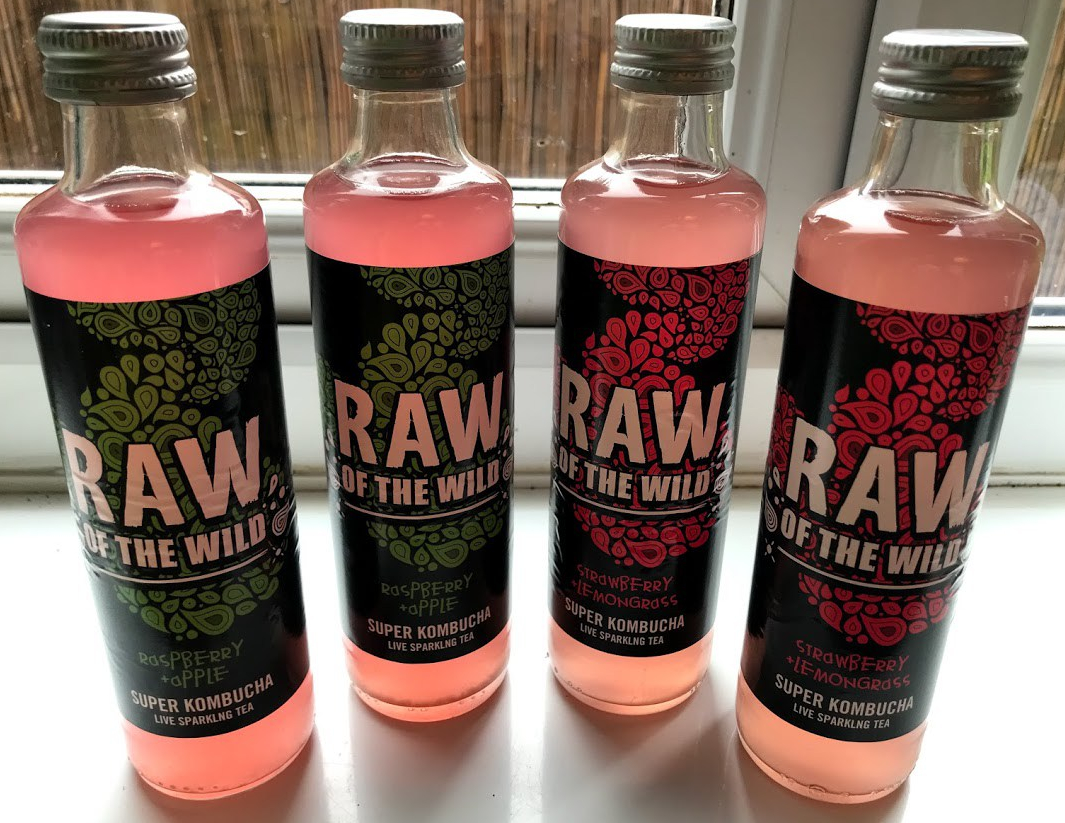 Source: www.lowfodmapinspiration.com
Source: www.lowfodmapinspiration.com
Symptoms of IBS
Irritable Bowel Syndrome (IBS) is a chronic condition that affects the large intestine, causing various uncomfortable symptoms. The most common symptoms include abdominal cramping, bloating, gas, and diarrhea. IBS is often triggered or aggravated by certain foods and drinks, and individuals with this condition need to carefully manage their diet to minimize these symptoms. Focusing on overall gut health, avoiding irritants, and introducing gut-friendly foods and drinks, like fermented beverages, can help manage IBS symptoms. [3][4]
 Source: nypost.com
Source: nypost.com
Managing IBS with Diet
Irritable Bowel Syndrome (IBS) is a complex condition affecting the large intestine, and many individuals find relief through careful management of their diet. Promoting good gut health is crucial, which can include eliminating known irritants and incorporating fermented beverages like kombucha and kefir. These drinks are rich in beneficial bacterial cultures that can help balance gut bacteria levels, reducing IBS symptoms. However, it is essential to consume kombucha in moderation, as it may contain FODMAPs, sugars, caffeine, and alcohol, which could potentially aggravate IBS. Consult your healthcare professional before incorporating kombucha in your IBS management plan. [5][6]
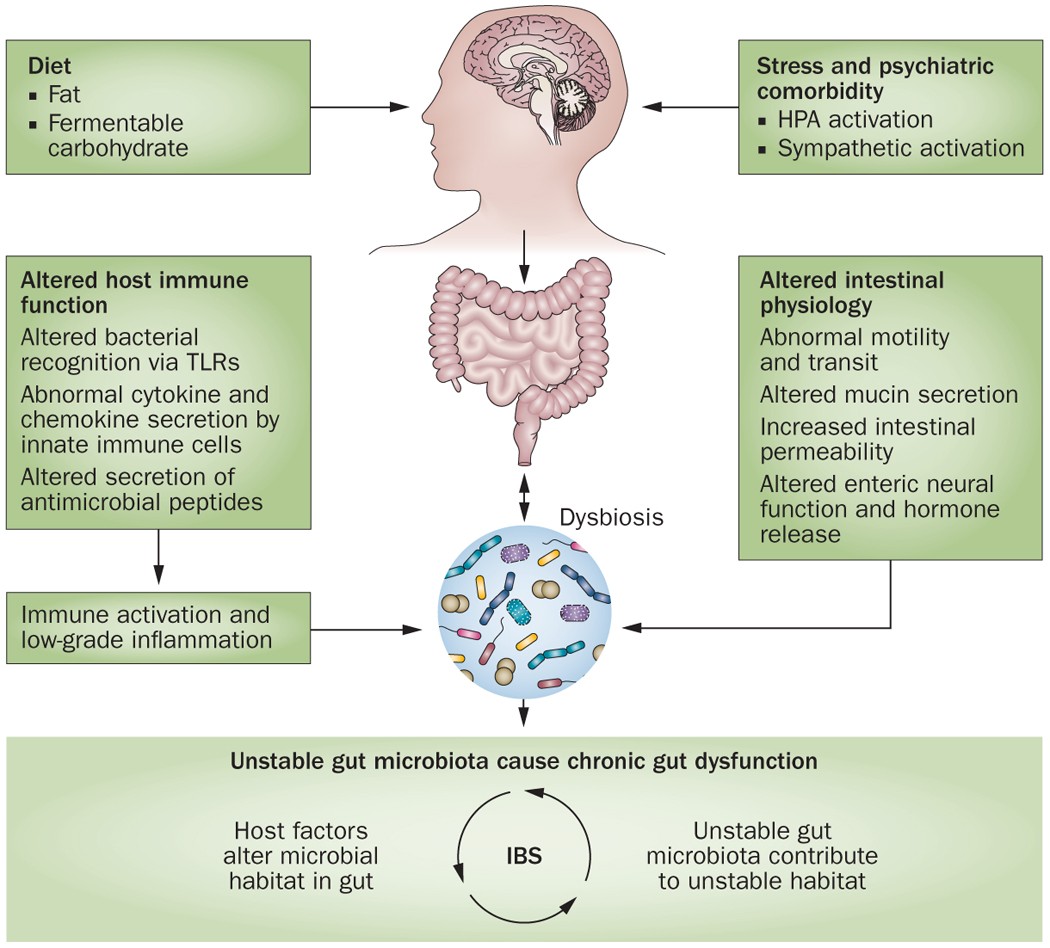 Source: media.springernature.com
Source: media.springernature.com
Role of Gut Health in Managing IBS
Gut health plays a crucial role in managing Irritable Bowel Syndrome (IBS), a common chronic gastrointestinal disorder. A healthy gut can significantly improve IBS symptoms, such as bloating, constipation, and diarrhea. Maintaining a balanced gut microbiome is essential for optimal digestive function and overall well-being. Probiotics, prebiotics, and a low FODMAP diet can support gut health and alleviate discomfort associated with IBS. However, it's essential to consult a healthcare professional for personalized advice as individual responses to dietary changes can vary. [7][8]
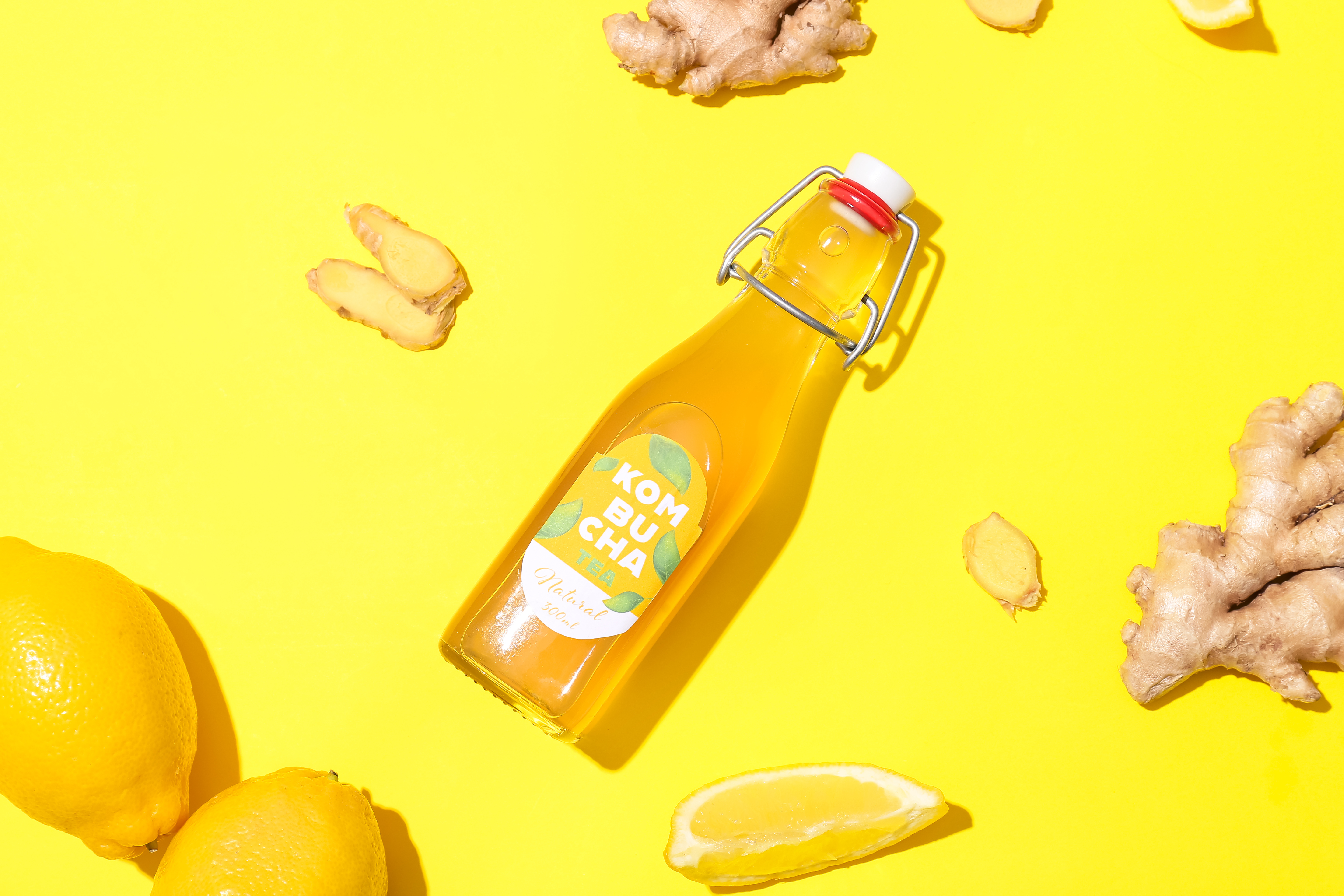 Source: www.datocms-assets.com
Source: www.datocms-assets.com
Benefits of Kombucha for IBS
One of the potential benefits of kombucha for people with IBS involves its probiotic properties. Authentically brewed and fermented kombucha contains living bacterial cultures that promote good gut health. The fermentation process in kombucha can help balance the levels of bacteria in the gut, potentially alleviating IBS symptoms.
However, it's essential to note that kombucha may be high in FODMAPs, which are carbohydrates that can upset the digestive system. People with IBS should enjoy kombucha in moderation, limiting their intake to small amounts, around 6 ounces, or less. This way, they can potentially experience the positive effects on their gut health without exacerbating their IBS symptoms. [9][10]
 Source: hips.hearstapps.com
Source: hips.hearstapps.com
Potential Triggers of IBS from Kombucha
Kombucha, a popular fermented tea beverage, contains various ingredients that may trigger Irritable Bowel Syndrome (IBS) flare-ups. One reason is that kombucha is a carbonated drink, known to cause bloating and gas due to the CO2 it delivers into the digestive system. Furthermore, kombucha contains fermentable carbohydrates called FODMAPs that can lead to digestive distress for IBS sufferers. The sugars and artificial sweeteners used in the fermentation process of kombucha can also cause discomfort. Additionally, the caffeine and alcohol produced during fermentation may contribute to intestinal cramping, laxative effects, or loose stools. [11][12]
 Source : images-prod.healthline.com
Source : images-prod.healthline.com
Effects of Sugar, Caffeine and Alcohol in Kombucha
The sugar, caffeine, and alcohol content in kombucha can have varying effects on individuals with IBS. Sugar, which is used in the fermentation process, may be problematic for some, as excess fructose can lead to digestive distress. Furthermore, artificial sweeteners like sorbitol and mannitol can worsen IBS symptoms.
Caffeine present in kombucha also has the potential to stimulate intestinal contractions, causing cramping and laxative effects. Lastly, the small amount of alcohol produced during fermentation may cause loose stools in those who are sensitive. It's important to monitor one's reaction to these components when drinking kombucha with IBS. [13][14]
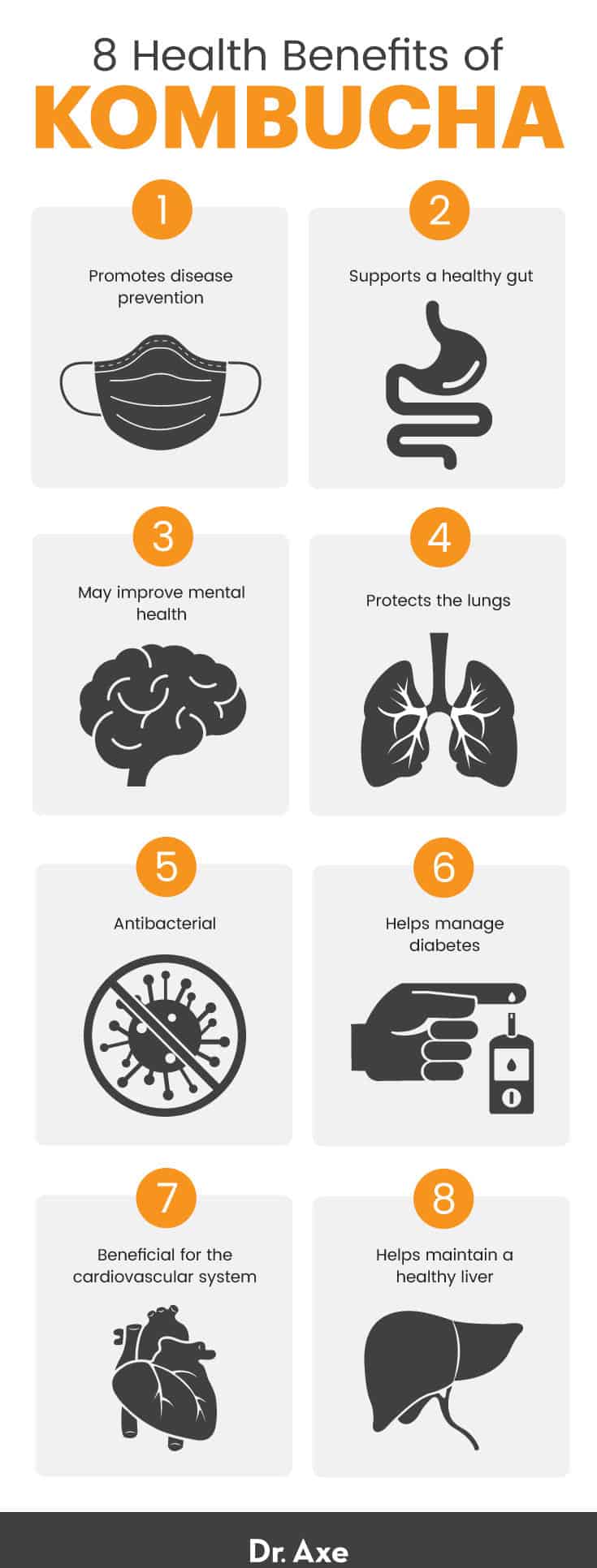 Source: draxe.com
Source: draxe.com
Low-Sugar Healthy Alternatives to Kombucha
If you're looking for a low-sugar, healthy alternative to kombucha, there are plenty of options available. One popular choice is water kefir, a fermented beverage made from water, sugar, and kefir grains. It is packed with probiotics and has a slightly sweet taste.
Another option is coconut water, which is a rich source of electrolytes and a natural revitalizer. It contains only natural sugars and provides hydration without the potential IBS triggers found in kombucha. Lastly, herbal teas made from soothing ingredients like ginger, peppermint or chamomile may help reduce IBS symptoms without the added sugar and carbonation of kombucha. [15][16]
 Source: www.lowfodmapinspiration.com
Source: www.lowfodmapinspiration.com
When to See a Doctor for IBS
If you are experiencing symptoms such as constipation, diarrhea, abdominal bloating or discomfort that comes and goes, it may be time to consult your doctor about the possibility of irritable bowel syndrome (IBS). These symptoms can be disruptive to daily life but should not be ignored, as they could be indicative of a more serious condition. It is important to discuss your concerns with a healthcare professional for proper diagnosis and appropriate treatment options tailored to your individual needs. [17][18]
 Source: twistedkombucha.co.uk
Source: twistedkombucha.co.uk
Conclusion and Recommendations for Drinking Kombucha with IBS
In conclusion, the effects of kombucha on IBS symptoms may vary from person to person. Some people may find relief from their IBS symptoms by consuming kombucha, while others may experience worsened symptoms. If you have IBS and are considering incorporating kombucha into your diet, it is essential to consult your doctor first. Be sure to choose a low-sugar, low-caffeine, and low-alcohol kombucha, and start with a small amount to observe its effects on your IBS symptoms. Remember that moderation is key when introducing new foods or beverages into your diet. [19][20]
